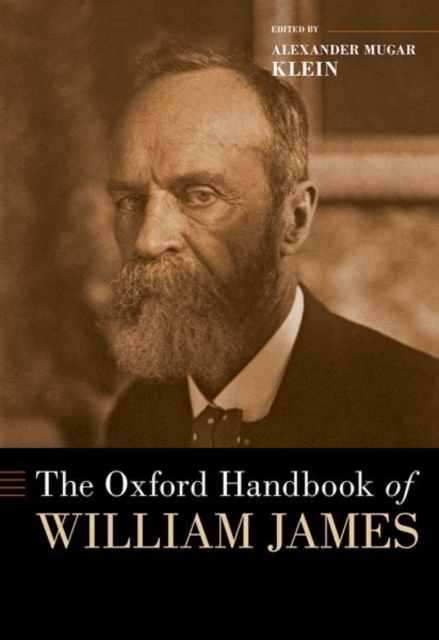
The Oxford Handbook of William James Hardback
Edited by Alexander Mugar (Canada Research Chair and Associate Professor of Philosophy, Canada Research Klein
Part of the Oxford Handbooks series
Hardback
Description
William James was a giant of turn-of-the-century intellectual life.
He helped found the young science of physiological psychology, produced a series of widely debated texts on religious experience and on the ethics of faith, co-founded the pragmatist movement in philosophy, and at the end of his life, developed a distinctive metaphysics concerning the relationship between mind and matter that is still influential today.
In philosophy, James is remembered for his pragmatism, an outlook that ties truth and meaning to practical results, and for his will to believe doctrine, which defends a right to believe even without evidence, in some cases.
His landmark contributions to psychology include his theory that emotions are feelings of bodily changes following excitement--that "we feel sorry because we cry, are angry because we strike" and not vice versa.
His Varieties of Religious Experience offered an intimate look at intense, personal, and often heterodox religious experiences.
Featuring twenty-nine new essays by leading scholars like Gary Hatfield, Philip Kitcher, Cheryl Misak, and Jesse Prinz, this Oxford Handbook provides an organized, chapter-by-chapter presentation of key themes in James's thought.
These themes include attention, emotion, consciousness, evolution, intentionality, truth, religion, ethics, pragmatism, mathematics, and radical empiricism.
James was an extraordinarily dialectical thinker, and his engagement with figures from Hume and Hegel to Peirce and Dewey are covered along with his influence on later phenomenology and analytic philosophy.
Each chapter provides those new to James with an accessible route into a topic of interest, while also providing seasoned readers sophisticated interpretations by the best living scholars working on James today.
Information
-
Pre-Order
- Format:Hardback
- Pages:624 pages
- Publisher:Oxford University Press Inc
- Publication Date:29/07/2024
- Category:
- ISBN:9780199395699
Information
-
Pre-Order
- Format:Hardback
- Pages:624 pages
- Publisher:Oxford University Press Inc
- Publication Date:29/07/2024
- Category:
- ISBN:9780199395699










